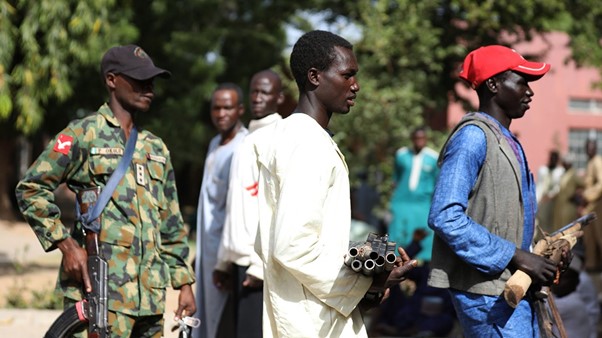Nigeria Lacks Resources To Tackle Insecurity In Northwest, Needs Considerable Assistance – Report
"Given the government’s resource and capacity deficits, international partners can do much to help,” the International Crisis Group suggested.

The Brussels-based think tank, International Crisis Group (ICG), has observed in its latest watch list update that Nigeria’s government does not have the needed human and material resources to fight growing insecurity in the country’s northwest region.
The report, published on Wednesday, May 27, as a guide to the European Union (EU), features conflict situations in Bolivia, Myanmar, Nigeria, Ukraine, and Yemen.
“Although Nigeria’s government has repeatedly vowed to curb bloodshed, its military response has been inadequate,” ICG noted.
“Security forces are stretched woefully thin across the region. In Niger State, the governor complained that there are only 4,000 police to protect 24 million citizens (a dismal ratio of one police officer per 6,000 citizens) … The federal government, however, has undertaken no major recruitment campaigns for security personnel in several years.”
Another constraint security operations in the region have faced is a lack of adequate equipment, according to the report.
Quoting locals, Crisis Group said security officers have been reported to have fled combat with criminals after running out of ammunition.
Resource scarcity in the handling of the crisis is not only visible in military operations but also in the government’s humanitarian programmes.
“The federal government has made little effort to provide internally displaced persons (IDP) with food, water, emergency shelters or sanitary facilities, and its Humanitarian Response Plan for 2021 makes no mention of the crisis in the Northwest. Meanwhile, there are few international agencies on the ground,” the think tank wrote.
ICG stated that Nigeria needs “considerable assistance” to bring the situation under control. The EU, for instance, could offer assistance in a minimum of three areas.
“A first priority is security support to the Nigerian government. The EU and its member states could assist Nigeria’s security agencies with logistics and communication facilities to help protect rural dwellers and respond more effectively to early warnings and distress calls,” it suggested.
“As most armed groups are hiding in forests, the EU could provide the military with reconnaissance and intelligence-gathering equipment to help apprehend them, making all such assistance subject to appropriate human rights vetting.”
The organisation noted further that the EU and its member states can also help Nigeria better secure its borders through capacity building, supporting intelligence gathering, the provision of equipment, and assisting the recently established National Centre for the Control of Small Arms and Light Weapons.
“Secondly, the EU and its member states should help ease the humanitarian crisis. Beyond providing direct aid to the thousands of IDPs living in poorly run camps, they could help the Nigerian government survey the numerous displaced who have found refuge in cities and villages,” ICG continued.
“Many victims of abduction, women and children especially, though released, remain at risk of exploitation, trafficking and gender-based violence. The EU and its member states could focus on the establishment and expansion of special community-based counselling and rehabilitation programs, providing women and children victims with physical and psycho-social support that could help reduce their vulnerability to such risks.”
Finally, the non-profit recommended, the EU can support dialogue, reconciliation, and de-escalation efforts.
“Given the government’s resource and capacity deficits, international partners can do much to help,” ICG concluded.
Support Our Journalism
There are millions of ordinary people affected by conflict in Africa whose stories are missing in the mainstream media. HumAngle is determined to tell those challenging and under-reported stories, hoping that the people impacted by these conflicts will find the safety and security they deserve.
To ensure that we continue to provide public service coverage, we have a small favour to ask you. We want you to be part of our journalistic endeavour by contributing a token to us.
Your donation will further promote a robust, free, and independent media.
Donate HereStay Closer To The Stories That Matter




